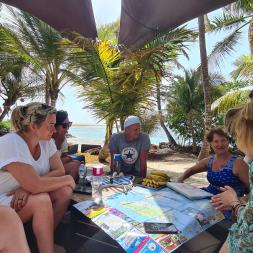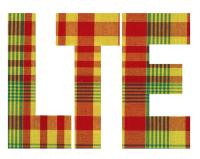
A Classroom with a Door to the World (COD)
Why does globalisation enhance inclusion as well as national and cultural identity? How to integrate international work into school subjects?
What strategies can be implemented to develop inclusive projects?
These ideas will be explored during the 10 day course. Participants will leave equipped with knowledge, tools and methods for successful internationalisation of their school curriculum.
Description
Day 1
Introduction to the course
Identity and concept of internationalisation
Identity and transformational learning
Day 2
Museum visit – events that shape culture
Some thoughts about Culture
Market visit - multiculturalism
Video to watch: The Danger of a Single Story
Day 3
Music: the cultural context
GwoKa experience
Day 4
Global citizenship and Global Outlook
Become a global citizen
International Learning: Global Citizenship Themes, skills and outlooks
Day 5
Internationalisation – why?
The quality of education
Survey of international work
Day 6
National school education systems
Inclusion of immigrants
Inclusion of students with special educational needs
Day 7
Internationalisation of the curriculum
Erasmus+ objectives and priorities
School International Policy
Day 8
Nature reserve
Developing key competences in one project
Day 9
Feedback on key competences
International project within curriculum
Whole school involvement in a project
Day 10
Feedback and evaluation
Learning objectives
- - improve management and teaching competences in multicultural classroom,
- - explore teaching methods that emphasise real life experiences,
- - analyse European dimension inside the curriculum,
- - improve language competence,
- - build connections with colleagues from other countries;
- - increase knowledge of preparation, implementation, monitoring and follow up of international projects.
Methodology & assessment
Participants register on eTwinning and familiarise themselves with the platform and complete the preparation assignments on Padlets.
Implementation:
Learning through experience is the key element in our professional development courses. Participants study and discuss the theoretical background of the ideas, engage in the related experiences and reflect on their personal learning. The environment of the activities is set to enhance the learning and experiences.
Follow-up
After the course participants reflect on the gained knowledge and its application in their own educational environment. The trainers provide support for collaboration between participant
Materials, digital tools & other learning resources
- Course booklet including activities and theory for each session;
- Reflection on Padlets;
- The course is enriched by eTwinning project: “Classroom with a Door to the World”, which serves for monitoring own learning, visibility and dissemination.
Certification details
Certificate of attendance
Europass mobility document
Pricing, packages and other information
-
Price:880Euro
-
Course package content:
10 day course x 80 Euros = 800 Euros
Transport for 4 educational visits x 20 Euros = 80 Euros
Total package fee = 880 Euros
Travel, accommodation and meals are paid individually by participants.
We provide recommendations for accommodation.
No additional costs will be charged during the course.
Registration: cheritage100@gmail.com
-
Additional information:Description of the services and activities included in the course package (such as accommodation, meals, transport) or available at extra cost.
-
Cancellation & changes:
If you have to cancel your participation after you have made the payment and received the course materials, we charge you 100 Euro administration fee. On cancellation less than 4 weeks before the course start date we charge 500 Euro. To avoid cancellation fees you can change participants or choose another available session or course provided by Kaunas Biennial. We can also offer a voucher for a full amount paid. The voucher is valid for all the courses by Kaunas Biennial until 31.12.2027
-
Additional information:The options and conditions for change and cancellation, and the policy in case of unforeseen circumstances (force majeure).
Additional information
-
Language:English
-
Target audience ISCED:Primary education (ISCED 1)Lower secondary education (ISCED 2)Upper secondary education (ISCED 3)
-
Target audience type:TeacherHead Teacher / PrincipalLibrarian
-
Learning time:25 hours or more
Upcoming sessions
Past sessions
More courses by this organiser


Digital Dynamic Cultural Dialogue (DDCD)



